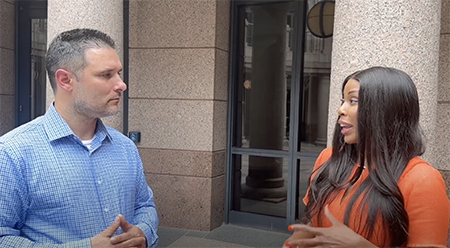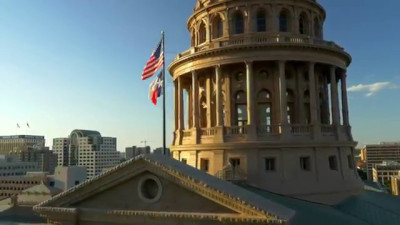Anti-Union Measure Advances in the Texas Senate
 A proposal aimed at making it even more difficult than it already is for organized labor groups to operate in Texas is one step closer to reality. Senate Bill 13 would make it illegal in this "right to work" state for the members of certain groups to have their union dues immediately deducted from government paychecks. Under Texas law today, no person can be required to be in a union as a condition of employment. In other words, all union membership in Texas is voluntary.
A proposal aimed at making it even more difficult than it already is for organized labor groups to operate in Texas is one step closer to reality. Senate Bill 13 would make it illegal in this "right to work" state for the members of certain groups to have their union dues immediately deducted from government paychecks. Under Texas law today, no person can be required to be in a union as a condition of employment. In other words, all union membership in Texas is voluntary.
On a party-line vote this past week, the Texas Senate State Affairs Committee sent the bill to the full Senate for consideration. But in a state government controlled by Republicans, who generally support the idea, the measure still faces an uncertain future because – please excuse the cliché – the devil is in the details.
As it stands, first responders like police, firefighters, and EMS personnel are exempt from the bill so if this becomes law those groups would still be able to have their association dues deducted from their government paychecks. Others like teachers at public schools could not. This became a major sticking point during the last regular session of the Texas Legislature in 2015 when a similar proposal failed to become law.
Reporter Eleanor Dearman at the Quorum Report tells us some GOP lawmakers are uncomfortable with passing a law that establishes different rules for different groups:
Sen. Craig Estes, along with several other lawmakers, had doubts about the change excluding first responders. The Wichita Falls Republican asked “What’s the difference”? “It seems like if this is a great thing, it’s great for everybody,” Estes said, later adding that he liked the bill better before the exemption provision was added.
Sen. Joan Huffman, a Houston Republican who is also the author of the bill, defended it by saying first responders do not meddle in business affairs. “They serve the community and they serve the large majority of cases with great honor and distinction, and they don’t get involved, that I’ve ever seen, in business issues, and for these reasons I feel comfortable exempting them,” Huffman said.
Business groups including the National Federation of Independent Business, or NFIB, and the Texas Association of Business as well as the Associated Builders and Contractors of Texas support the bill. But a coalition of those groups broke apart after firefighters’ representatives at the Capitol pointed out the issue has been used by a group called Empower Texans to campaign against some Republican lawmakers.
This is from Quorum Report back in October:
The Texas Association of Business still supports the policy position, of course, but the powerful trade association is now distancing itself from an alliance of other business groups called the Texas Business Coalition. That coalition, chaired by Houston janitorial executive Brent Southwell, includes the National Federation of Independent Business, Texas Retailers, the Building Owners and Managers Association, the Associated Builders and Contractors of Texas, and others.
“The TAB will work independently of the Texas Business Coalition to support legislation that disallows the collection of such dues,” said Cathy DeWitt, TAB’s Vice President of Governmental Affairs. When asked why TAB was leaving the NFIB-led group, DeWitt said “We didn’t feel we needed to be a part of the coalition to support the issue.”
TAB’s decision comes after the Texas State Association of Fire Fighters pointed out during a Senate hearing that Tim Dunn’s group Empower Texans has been campaigning on the issue of union dues deductions. During the hearing, business leaders winced when Dunn’s group was mentioned.
Even though police and firefighters are excluded from the bill right now, Charley Wilkison, executive director of the Combined Law Enforcement Association of Texas, has said he's worried officers could be tacked back onto the list of those included. During his testimony, Wilkison told senators that a top GOP leader privately told him law enforcement would be added back into the legislation.
“Someone who identified themself as the highest-ranking person in the Republican Party said ‘I’m not threatening you, you’re going to be in the bill,” Wilkison said during his testimony. When asked by a reporter who that “highest-ranking person” in the GOP was, Wilkison would not say.







